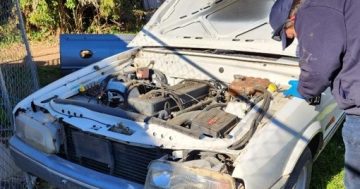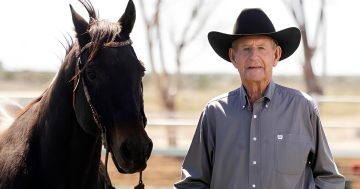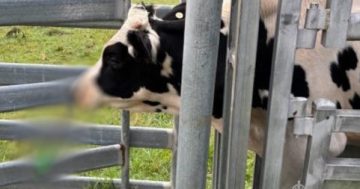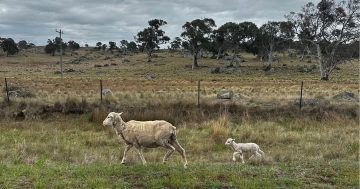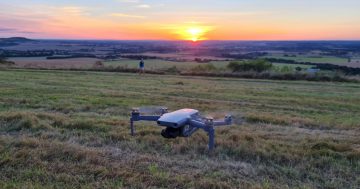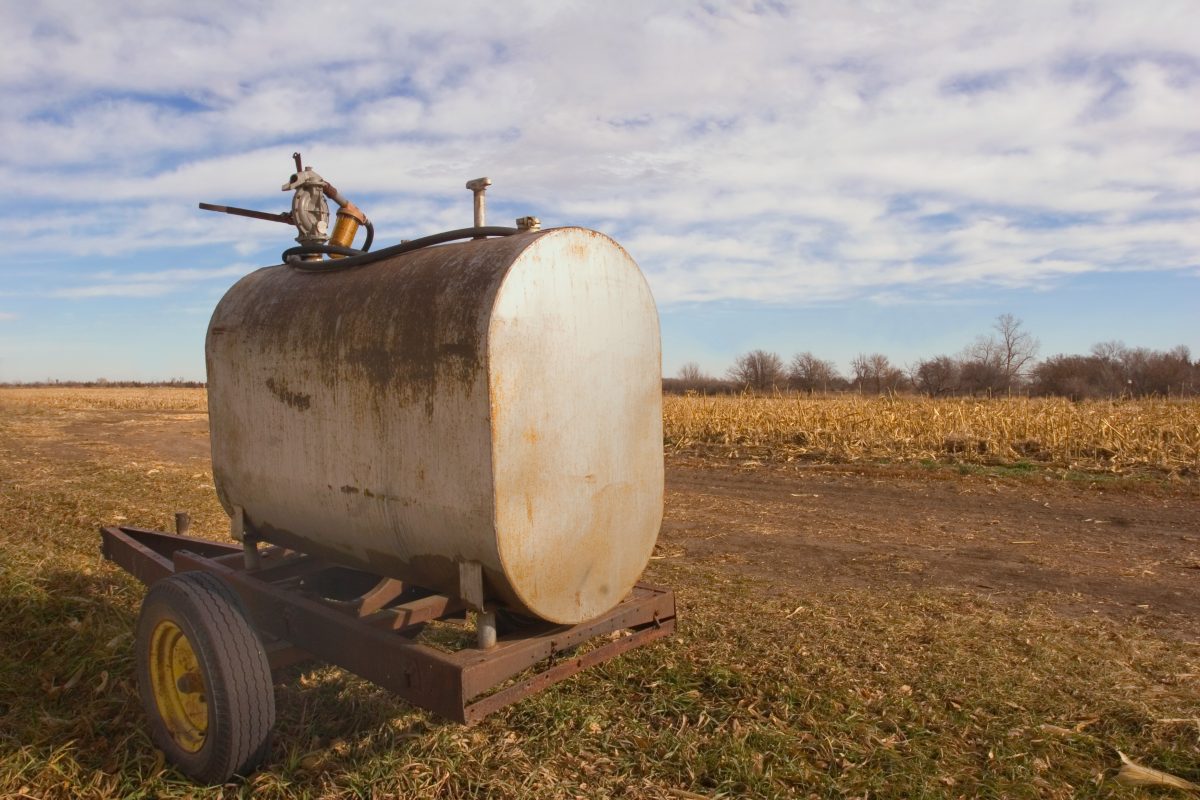
A simple padlock on a farm fuel tank tailer can both deter and help identify thieves. Photo: Midwest Wilderness.
With fuel prices at historic highs, police are warning rural property owners to keep their tanks locked up tight.
Rural Crime Prevention Team’s southern region coordinator Detective Sergeant Damien Nott says farmers need to “harden targets” with chains, locks and security cameras.
“You need to reduce the chance of becoming a victim and tighten up your security arrangements around your property,” he says.
Around 1000 litres of diesel was recently stolen from a property outside Coleambally. Det Sgt Nott says it can be challenging to identify how and when a remote fuel tank has been targeted.
“That occurred between the first of June and the first of July, so it’s very difficult when we turn up at that scene to get an understanding of what happened there,” he explains.
“Was it someone that came back with their jerrycans three or four times because it was a remote dump or was it someone that turned up with a tanker and just took 1000 litres?”
He says that something as simple as a chain and padlock can act as both a deterrent and a means of pinpointing the crime.
“We got a bloke in Dubbo who cut some stuff off a solar panel on a pump and later on we grabbed him driving around with these bolt cutters in the back,” he says.
“We matched the bolt cutters to the striations they make and it was nearly as unique as a fingerprint.
“So all of a sudden your old lock and chain’s got a bit more value than what you first thought.”
Surveillance cameras are a more substantial investment, but Det Sgt Nott says even the threat of a camera may give a potential thief pause.
“If someone rolls up to your front gate and sees even a dummy camera on a pole, they’re gonna sit there and wonder if they’ve already been filmed,” he said.
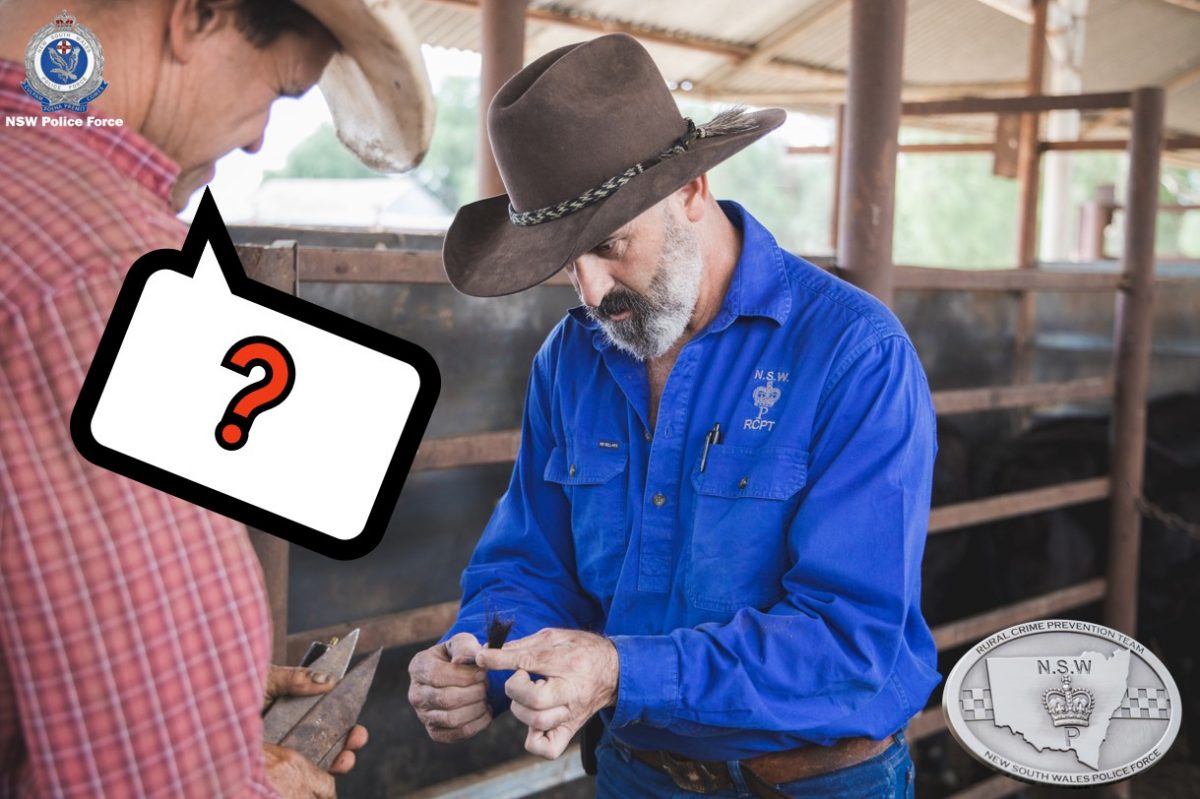
Rural Crime Prevention Team’s southern region coordinator Detective Sergeant Damien Nott. Photo: NSW Police.
Established in 2017, the Rural Crime Prevention Team has nine detectives and an analyst working with Police Districts across the southwest zone.
All are from rural backgrounds and have skills and knowledge that enhance their capability in the role.
Det Sgt Nott says they respond to a broad range of issues in the rural sector and work proactively to foster working relationships within the farming community.
“Research shows that up to 80 per cent of rural crimes have traditionally not been reported,” he says.
“That’s starting to turn around as our section gets more of a profile within rural and remote NSW and we create awareness of what we do and that we can get results.”
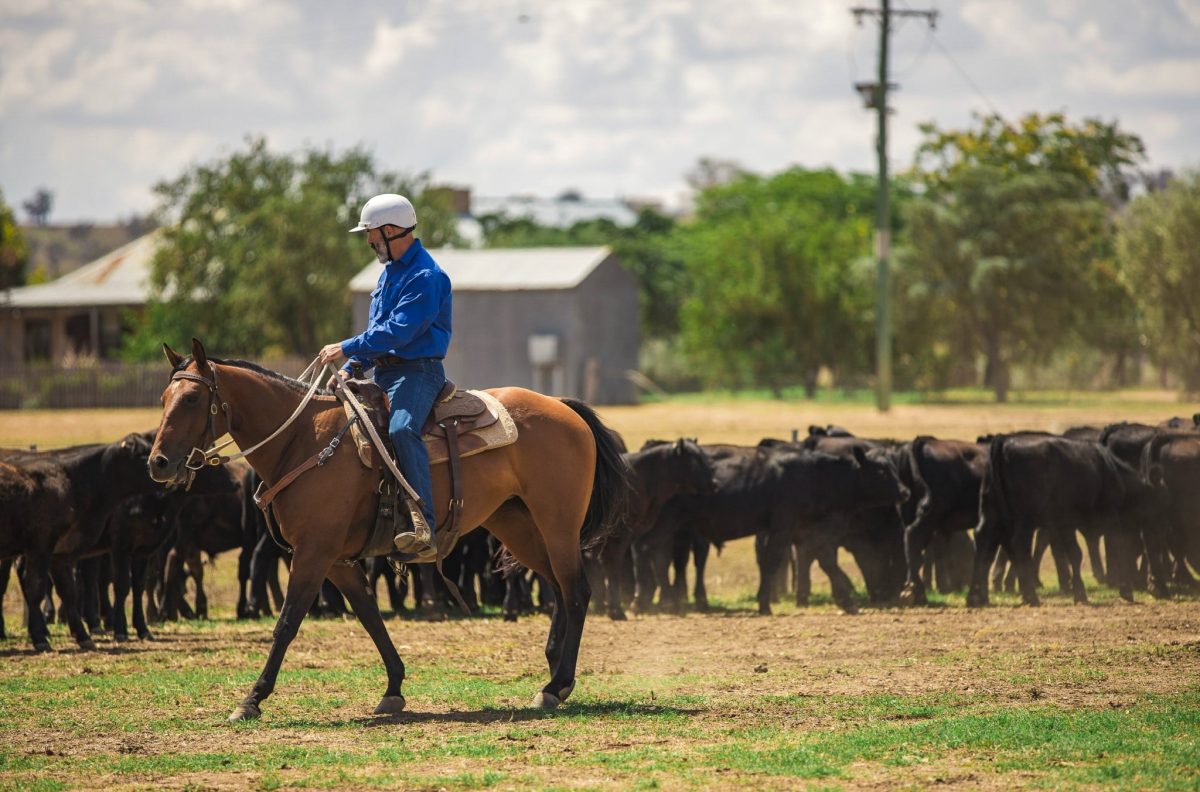
The NSW Police Rural Crime Prevention Team engage in various tasks, including mustering stolen livestock on horseback. Photo: NSW Police.
The team engages in a unique variety of tasks from mustering stolen livestock on horseback to predictive intelligence work and analysing data to locate missing animals.
“A lot of times we’ll go through the paperwork and find the stock in the books or sharing tallies and they almost jumped for joy and want to hug you,” Det Sgt Nott said.
The current increase in fuel theft fits a general pattern of crime that reflects commodity prices.
“During drought, people are more likely to steal water and fodder and things that we don’t see get touched any other time,” he explains.
“At the end of the drought, we’ll see female livestock targeted and now it’s fuel with diesel prices.
“This is where our analysts have been invaluable to us because we are becoming a whole lot better at predictive intelligence work that assists us in the field.”
But at the end of the day, he says it’s about building trust and communication.
“Experience 100 per cent tells us that prevention is better than the cure,” Det Sgt Nott said.
You can keep across the NSW Police Force Rural Crime Investigators via their official Facebook page.
If you wish to pass on information about a crime, contact Crime Stoppers on 1800 333 000 (Australia only) or report online.
Original Article published by Chris Roe on Region Riverina.







